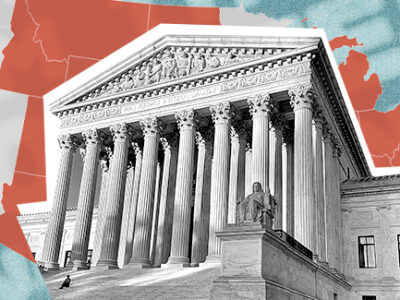
Editor’s note: A version of this article first appeared at Forbes.com.
Last summer, Barack Obama riled a lot of entrepreneurs when he got carried away at a campaign event and told any American who had built up a successful enterprise, “you didn’t build that.” An even greater backlash awaits any politician who dares to tell Medicare recipients, “You didn’t pay for that”—for there are far more seniors than entrepreneurs in our country.
Time after time during Election Year 2012, seniors and near-seniors reacted to the slightest mention of Medicare reform with indignation and the emphatic insistence, “Don’t you dare touch Medicare; I’ve paid for it!” There is only one problem with that statement: In a mathematical sense, it isn’t true.
The amount that American workers have paid and are paying into Medicare isn’t enough to fund all the benefits that are being paid out to seniors under Medicare. The trustees of Medicare have stated that the promises they have made exceed their projected revenues by tens of trillions of dollars. Senator Tom Coburn (a physician in private life) has estimated that the average American couple contributes approximately $110,000 to Medicare over their working careers and receives over $330,000 of Medicare benefits. On Feb. 20, USA Today cited Urban Institute data pegging those same figures at $88,000 and $387,000, respectively. There are differing estimates of the size of the gap, but clearly Medicare suffers from an unsustainable funding deficit.
Let me hasten to say that I have sympathy for those who make the “I paid for it” case. Through decades of their working lives, millions of seniors paid into the system and were promised that Medicare would be there for them starting at age 65. These citizens played by the rules, acted in good faith, and held up their end of the bargain.
The problem is that the politicians in Washington have not acted in good faith. Instead, they have committed a gigantic fraud by underfunding the program. The fact of the matter is that we’ve been swindled, and the anger and sense of pending betrayal that many seniors feel is understandable. At the same time, we, the people, need to accept some responsibility for this sorry state of affairs.
Certainly, the members of Congress and presidents who allowed the imbalance between Medicare income and expenditures to get so out of whack are ethically culpable. Still, “we the people” share some responsibility for the Medicare fiasco. The mistake was naïveté and gullibility. We can see now what an enormous mistake it was to trust politicians’ promises.
Regrets and recriminations aside, the question now is: Where do we go from here? What are our options? The only way that the oncoming flood of baby boomers will be able to receive all the Medicare benefits that they were promised would be to either increase payments into the system or reduce disbursements from it.
We already have seen how volatile, contentious, and divisive the political strife over Medicare has been. Sadly, it is likely to get much worse. Generations will be arrayed against generations.
On the one side, gray-haired Americans will demand that the promises made to them, and for which they upheld their end of the bargain, be kept. The progressives have played a masterful political game; they will have huge numbers of average Americans who think of themselves as anything but socialists egging them on and supporting them in their quest to absorb and appropriate more property. The great American middle class, which has the most to lose when Big Government supplants the private sector, will be energetically demanding some of the very policies that will crush the life out of the economy.
On the other side, at some point the younger generations are going to rebel against the debt slavery to which they have been subjected, and they will push back as a matter of economic survival and a desire to feel as free as their elders once did. Responding to pressure from the young, the federal healthcare blob inevitably will ration health care.
What a terrible price Americans will pay for falling for the seductive promise of a benign government caring for us all in our old age. Not only will the country be poorer and less free, but the quality of health care itself is bound to decline—all while our society is riven between young and old when the common enemy is the idea that the compulsory economic relations imposed by government comprise a way of life that is somehow more just, more harmonious, more helpful, and more prosperous than a society in which each individual’s life and property are his own and economic exchanges are voluntary (i.e., a society in which people are free).





Pingback: The GOP Debate: What Candidates Showed The Most Economic Wisdom? | 123 Market News